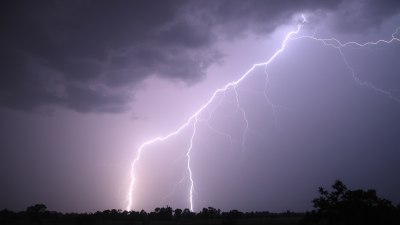Why Birds Always Seem to Know What’s Coming Before You Do
Explore the fascinating instincts of birds and their ability to sense changes in the environment.

This image was created with the assistance of Freepik
Have you ever marveled at how birds seem to have an uncanny ability to sense what's about to happen before you even notice? Whether it's the sudden flight of a flock of sparrows at the approach of a storm or the early morning chorus that hints at a sunny day, birds possess remarkable instincts that often leave us in awe. In this article, we'll delve into the various factors that contribute to this seemingly psychic ability of our feathered friends, exploring the sensory adaptations, environmental cues, and evolutionary advantages that allow birds to stay one step ahead of us.
1. The Superhuman Senses of Birds
Birds are equipped with highly developed senses that surpass those of humans. Their keen eyesight is perhaps the most notable. Many species can see ultraviolet light, which is invisible to the human eye, giving them an advantage in spotting food or predators that we would miss. For instance, many fruits and flowers reflect UV light, and birds can use this to locate ripe berries or blooming plants from great distances.
In addition to their exceptional vision, birds have an acute sense of hearing. They can detect sounds at frequencies beyond human capability, which allows them to hear the faintest rustle of leaves or the calls of other birds. This heightened auditory sensitivity is crucial for detecting approaching predators or understanding the social dynamics within their species.
2. The Role of Instinct and Learning
Birds rely on a combination of instinctual behavior and learned experiences to interpret their surroundings. Many species are hardwired to react to particular stimuli—such as the sound of thunder or the vibration of the earth during an earthquake—allowing them to take flight or seek shelter preemptively. However, they also learn from their experiences. For instance, if a bird has previously encountered danger during a specific weather pattern, it may develop an instinctive response to similar situations in the future, enhancing its ability to anticipate threats.
3. Environmental Cues
Birds are incredibly attuned to their environments, picking up on subtle cues that indicate changes in weather or habitat. They can sense changes in barometric pressure, which often precedes a storm, prompting them to seek shelter. Birds also observe the behavior of other animals. If nearby mammals or insects are exhibiting signs of distress, birds may interpret that as a signal that something is amiss, leading them to take precautionary measures.
4. Social Dynamics and Communication
Many bird species communicate using a variety of calls and vocalizations, which can convey crucial information about their environment. Alarm calls, for example, inform others of potential threats, enabling them to react quickly. This social aspect of birdlife also enhances their ability to sense danger, as they can rely on the alerts of their flock. The interconnectedness of bird communities means that knowledge about impending threats spreads rapidly, allowing for an efficient survival strategy.
5. Migratory Patterns and Seasonal Changes
Birds that migrate exhibit an impressive ability to predict seasonal changes and navigate vast distances. They rely on a mix of innate instincts and experiential learning, tuning in to environmental signals such as the angle of the sun, the position of the stars, and even the Earth's magnetic field. This extraordinary navigation ability allows them to time their migrations perfectly, ensuring they reach breeding or feeding grounds at optimal times, often before rivals or competitors.
6. The Influence of Climate Change
As our climate continues to change, birds are adapting and recalibrating their responses to environmental cues. Studies have shown that some species are starting their migrations earlier or altering their breeding schedules based on temperature fluctuations and food availability. Their keen instincts and ability to learn may very well serve as a barometer for changes in our ecosystems, highlighting their vital role in addressing climate change impacts.
7. The Human Connection
While we often ponder how birds can seem to know what’s coming, it's important to remember the profound connection between birds and humans. As observers of nature, we can learn to attune ourselves to the same signals and cues that birds respond to; for instance, watching the sky for bird movements may help us predict weather changes. Engaging with our natural environment can offer deeper insights into the patterns of life occurring all around us.
The Wisdom of Birds
Birds may seem to possess a sixth sense when it comes to anticipating events in their environment, but their abilities are a result of evolution, instinct, and acute sensory perception. By understanding the remarkable adaptations that make birds such adept survivors, we can foster greater appreciation for these incredible creatures and the roles they play within ecosystems. As we continue to observe and learn from them, we can also enhance our connection with nature, revealing the wisdom that lies within the world of birds.











